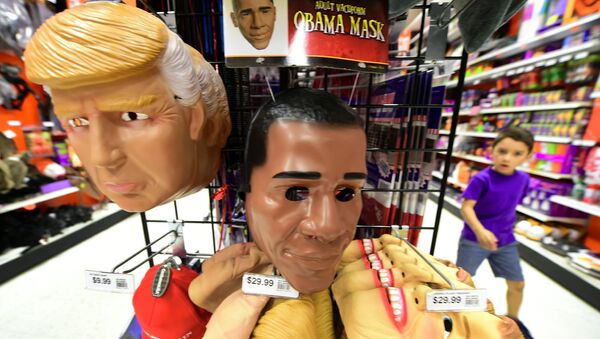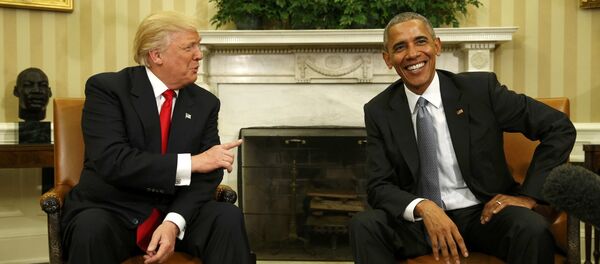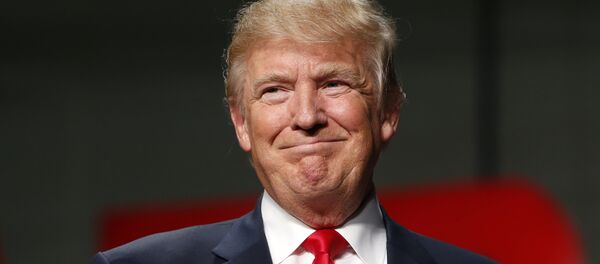The recent example is the new crisis in relations between Russia and the US. While the US outgoing President Barack Obama announced the expulsion of 35 Russian diplomats and imposed further sanctions against Russia over Moscow's alleged interference in the recent US presidential election, Donald Trump announced that he will try to improve relations with Russia once he takes the office and question if the claims of alleged Russia's involvement in the US election has enough proof.
A similar opinion was voiced by the President of the American Institute of Business and Economics in Moscow, Art Franczek, who told Sputnik that with his move Obama was trying to "satisfy hardliners" like John McCain and Lindsey Graham.
"I think he is preempting Trump because Trump is likely to have more favorable policy towards Russia that reflects real interest rather than some illusionary ones. Obama is trying to make sure that Trump won't back off on sanctions easily because it appears that Trump would be going against secret services on this issue," he said.
The disagreement between the two presidents is also especially evident regarding the US policy in the Middle East, Süddeutsche Zeitung wrote. While Obama has supported the UN resolution against Israeli settlements, Trump backed Prime Minister Benjamin Netanyahu, urging Israel to wait until he takes the office.
"Such exchange blows […] have no analogues in the modern American history," the newspaper wrote.
The "two presidents" also have differences over nuclear issue with Obama willing to cut the amount of nuclear weapons, and Trump, on the contrary, — to increase it.
Meanwhile, American foreign policy analyst and historian Diana Johnstone told Sputnik that Trump's statements could still have the value of a wake-up call to avert a new arms race.
"Stated by the garrulous Trump… it has what the French call l'effet d'annonce — that is, it may cause people to sit up and take notice. It is indeed time to sound the alarm and this may do it," Johnstone said.




